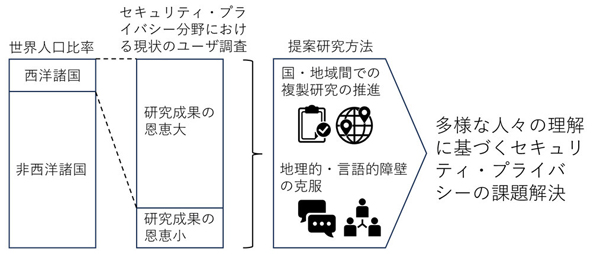NTT and NICT point out bias in security and privacy research

NTT and the National Institute of Information and Communications Technology (NICT) conducted a systematic survey of papers published as user surveys (surveys involving participants) in the field of security and privacy, quantitatively revealing the reality that most existing research targets people from limited geographical and cultural regions, mainly in the West.
The results point out that the generalizability of previous security and privacy research results is low, and that people from different geographical and cultural regions, such as Asia, including Japan, may not be able to fully benefit from them, and that it is important to clarify the differences between people from different geographical and cultural regions. They also propose research methods to promote understanding of diverse people.
The survey was conducted based on a systematic literature survey method. A systematic literature survey method is a method of systematically and comprehensively searching, evaluating, and integrating existing papers in a specific research field.
Among 7,587 papers published in the past five years (2017-2021) at prominent international conferences on cybersecurity and human-computer interaction, 715 papers that conducted user surveys on human-centered security and privacy were identified. These papers were analyzed using a method that ensured inter-rater reliability by multiple analysts in terms of participants’ country of residence, attributes, recruitment method, research method, and research topic. This revealed that the number of user survey samples targeting non-Western people has decreased from 25% to 20%, resulting in a large bias.
※Translating Japanese articles into English with AI
